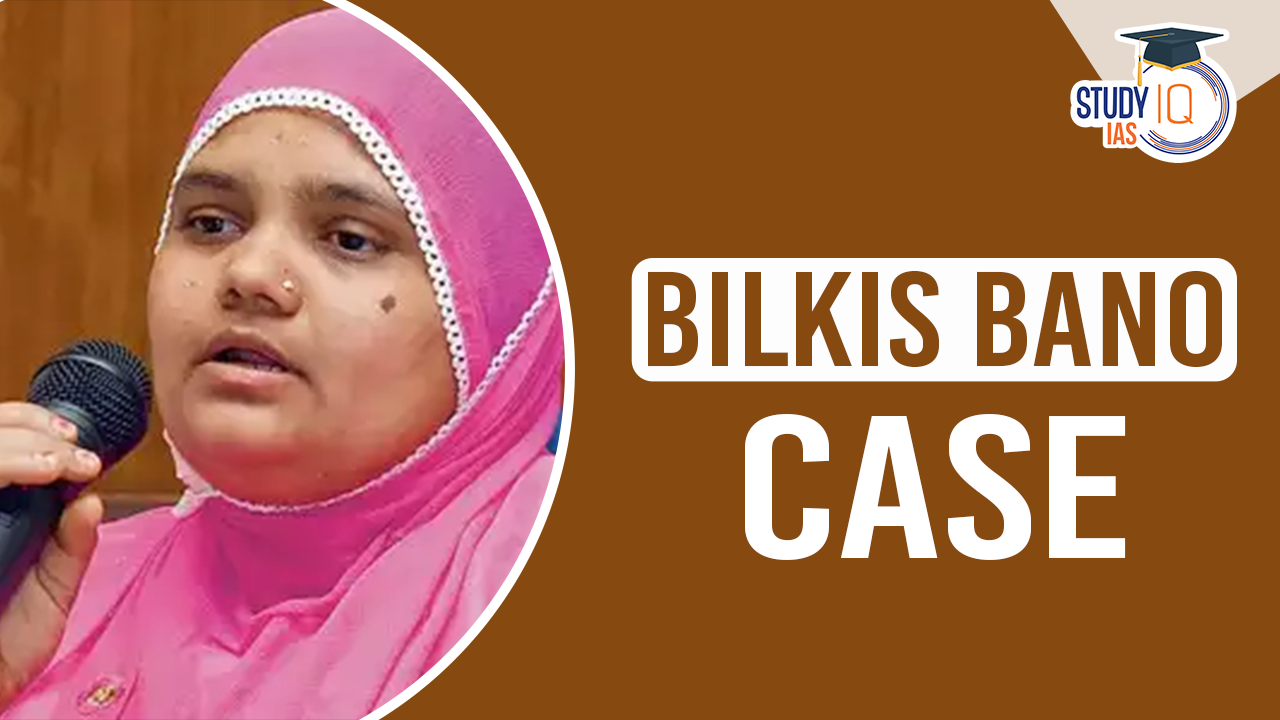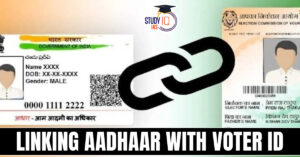Table of Contents
The Bilkis Bano case refers to a horrific incident during the Gujarat riots in 2002, where Bilkis Bano, a pregnant Muslim woman, became a victim of sexual assault and witnessed the brutal killing of her family members during the violence. The case gained national and international attention due to the brutality of the crimes committed. All 11 convicts who were involved in the murder of Bilkis Bano’s daughter as well as 6 other family members were granted remission by the Gujarat government and were released on August 15, 2022. In a recent move, Bilkis Bano Case Convicts Release Cancelled by Supreme Court.
We’re now on WhatsApp. Click to Join
What is Bilkis Bano Case?
- In February 2002, Bilkis Bano and her family fled riots in Randhikpur after the Godhra train burning.
- On March 3, 2002, she, five months pregnant, was raped, and 14 family members were killed.
- Despite registering an FIR, the police did not mention the rape. Investigations were initially closed but later reopened.
- Bilkis sought a CBI investigation, leading to charges against 20, including police officers and doctors.
- The Bilkis Bano Case shifted to Mumbai in 2004, resulting in convictions in 2008.
- In 2019, the SC directed compensation for Bilkis. In 2022, convicts were released, prompting Bilkis to challenge their premature release.
- On January 8, 2024, the Supreme Court overturned the Gujarat government’s decision to grant remission to the 11 convicts.
Bilkis Bano Case Timeline
| Date | Event |
| February 28, 2002 | Bilkis and family flee from Randhikpur after riots erupted following the Godhra train burning the day before. |
| March 3, 2002 | Bilkis, five months pregnant, is raped, and 14 of her family members are killed by a mob. |
| March 4, 2002 | Bilkis was taken to Limkheda police station; FIR was registered, but rape was not mentioned; the accused was not named despite Bilkis identifying 12 of them from Randhikpur. |
| March 5, 2002 | Bilkis was taken to Godhra Relief Camp; the executive magistrate recorded her statement; seven family members’ bodies were found in the jungle of Kesharpur. |
| November 6, 2002 | Police submit summary report ‘A,’ stating the case was true but undetected; requests closure, but the court directs continued investigation. |
| February, 2003 | Limkheda Police resubmits summary report ‘A,’ requesting case closure, accepted by the court. |
| April 2003 | Bilkis approaches the Supreme Court seeking the setting aside of the Magistrate’s order accepting ‘A’ summary and CBI investigation. |
| December 6, 2003 | Supreme Court orders the transfer of investigation to CBI. |
| January 1, 2004 | CBI DSP KN Sinha takes charge of the investigation from Gujarat Police. |
| February 1-2, 2004 | Bodies exhumed for CBI probe; 109 bones found, skulls not found. |
| April 19, 2004 | CBI files chargesheet before CJM Ahmedabad against 20 accused, including six police officers and two doctors. |
| August 2004 | SC moves the trial from Gujarat to Mumbai and directs the central government to appoint a special public prosecutor. |
| January 21, 2008 | Special Judge at Greater Mumbai passes verdict; 11 convicted to life imprisonment for murder and rape; seven acquitted; two abated due to death during the trial. |
| 2009-2011 | Appeals were filed by accused convicts and the CBI. CBI seeks the death sentence for three individuals and appeals against the acquittal of eight others. |
| 2016 | Bombay HC begins hearing appeals. |
| May 2017 | Bombay HC upholds life imprisonment for the 11, refuses to enhance punishment; additionally sets aside the acquittal of seven, convicting them under Sections 201 and 218 of IPC. |
| July 2017 | SC dismisses appeals by two doctors and four policemen against the Bombay HC conviction. |
| April 23, 2019 | SC directs payment of Rs 50 lakh as compensation to Bilkis; state government to provide employment and government accommodation. |
| May 30, 2019 | Convict Bhagora was dismissed by the Union Home Ministry a day before retirement, losing retirement benefits. |
| May 2022 | Convict Radheshyam Shah appeals against a July 17, 2019 order of the Gujarat High Court. |
| May 13, 2022 | SC asks the Gujarat government to consider Shah’s application for premature release within two months. |
| August 15, 2022 | 11 convicts were released from Godhra sub-jail on remission by the Gujarat government, including Radhyeshyam Shah. |
| September, 2022 | Bilkis Bano approaches the Supreme Court challenging the premature release of the 11 convicts. |
| January 8, 2024 | Supreme Court quashes Gujarat government’s decision to grant remission to 11 convicts. |
Bilkis Bano Case Convicts Release Cancelled by Supreme Court
The Supreme Court revoked the Gujarat government’s early release order for the eleven men convicted in the Bilkis Bano gang rape and murder case during the 2002 Gujarat riots. The convicts, released in August 2022, must surrender within two weeks. The Supreme Court ruled that Gujarat lacked the authority to release them and that Maharashtra, where the trial occurred, was the appropriate jurisdiction.
The Gujarat government’s use of an outdated 1992 remission policy when releasing the convicts faced criticism from activists and the opposition. Bilkis Bano was raped during the communal riots following the Godhra train-burning incident, resulting in the death of several family members, including her three-year-old daughter.
What Legal Options Can Now Be Taken by Convicts?
The eleven convicts in the Bilkis Bano gangrape and murder case, whose release was revoked by the Supreme Court, can explore the following legal options:
1. Review Petition: They can file a review petition before the Supreme Court within 30 days of the date of the judgment. A review petition is limited to rectifying an apparent error in the judgment that might have led to a “miscarriage of justice.”
Grounds for a review petition include:
- Discovery of new information or evidence not known earlier.
- Identification of a mistake or error evident on the face of the record.
- Any other sufficient reason deemed fit by the Court.
2. Fresh Remission Application: The convicts may apply for fresh remission after spending some time in jail. However, they must appeal to the Maharashtra government for remission, as the trial took place in that state. The Supreme Court clarified that the state where the offender is tried and sentenced is competent to decide remission pleas.
Significance of Bilkis Bano Case
- The Bilkis Bano case exposes the issue of communal violence in India and the shortcomings in providing justice to the victims.
- It emphasizes the critical need to protect the rights of women and minorities in the country.
- Bilkis Bano’s prolonged legal battle signifies that achieving justice is possible with persistence and courage.
- The case underscores the importance of civil society support in advocating for justice and societal change.
Bilkis Bano Case UPSC
Crimes against women in India, exemplified by the Bilkis Bano case, depict a growing concern. In this case, men expressed anger by raping women unrelated to the Sabarmati massacre. The incident sparked public outrage, revealing the failure of Indian courts to deliver justice to innocent victims. Criticism ensued when the Gujarat Government released the rapists and murderers on Independence Day, August 15, 2022. Despite the adoption of the 2014 remission policy, the convicts were acquitted using the outdated 1992 policy. The Supreme Court’s directive faced public backlash, reflecting a justice system perceived to favour criminals over victims. Bilkis Bano’s fight for justice encountered obstacles, emphasizing systemic flaws.


 Linking Aadhaar with Voter ID Endangers ...
Linking Aadhaar with Voter ID Endangers ...
 Article 142 of Indian Constitution, Sign...
Article 142 of Indian Constitution, Sign...
 Pakistan-Occupied Kashmir (PoK): History...
Pakistan-Occupied Kashmir (PoK): History...





















